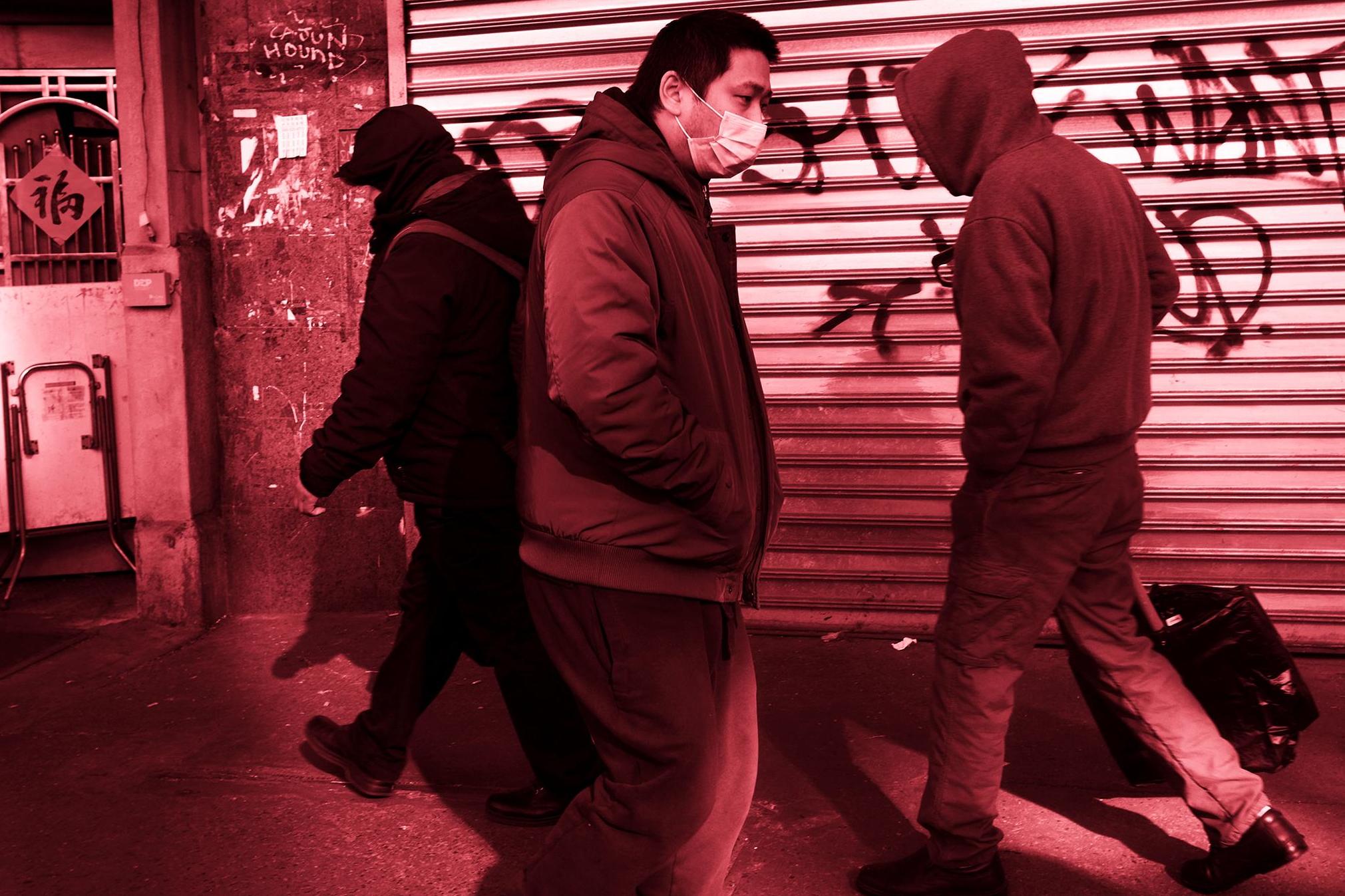Coronavirus: 12 myths about the deadly Covid-19 virus

As countries around the globe work to combat the spread of coronavirus, misinformation has made the fight against the deadly Covid-19 virus more difficult.
Currently, there are more than 81,000 confirmed cases of coronavirus in 43 countries and territories.
In an effort to minimise the impact of the virus, federal health organisations are working to keep the public updated about the ways we can keep ourselves healthy and safe from the disease.
While precautions such as properly washing your hands and covering your mouth when you cough are effective methods of keeping germs from spreading, the World Health Organisation (WHO) has compiled a list of myths that won’t help protect you from new coronavirus, from rinsing your nose with saline to eating garlic.
Can regularly rinsing your nose with saline help prevent new coronavirus?
According to WHO, there is “no evidence” that regularly rinsing your nose with saline has protected people from the virus.
“There is some limited evidence that regularly rinsing nose with saline can help people recover more quickly from the common cold,” the organisation states. “However, regularly rinsing the nose has not been shown to prevent respiratory infections.”
Are antibiotics effective in preventing and treating new coronavirus?
Because new coronavirus is a virus, antibiotics do not work in the treatment of the disease.
Currently, there is no vaccine or specific treatment for the virus, however, WHO states that those who are hospitalised for new coronavirus may receive antibiotics because “bacterial co-infection is possible.”
According to the organisation, some specific treatments for new coronavirus are currently under investigation, but must be tested through clinical trials.
Are hand dryers effective in killing the virus?
WHO states that hand dryers are not effective in killing new coronavirus. To protect against the virus, the organisation recommends frequently cleaning your hands with an alcohol-based hand rub or washing them with soap and water.
You can find more information about washing your hands here.
How effective are thermal scanners in detecting people infected with new coronavirus?
According to WHO, thermal scanners are effective in detecting people who have developed a fever, a symptom of the virus.
However, the scanners cannot detect people who have been infected but are not yet sick with fever - which can take between two and 10 days to develop after a person is infected.
Is it safe to receive a letter or package from China?
It is safe to receive mail from China, according to WHO, despite the virus originating in Wuhan, because “from previous analysis, we know coronaviruses do not survive long on objects, such as letters or packages”.
Can pets spread coronavirus?
Despite multiple claims that circulated on social media, there is “no evidence that companion animals/pets such as dogs or cats can be infected with coronavirus,” according to WHO.
The organisation does advise those who come in contact with pets to wash their hands after, however, as it can protect you from various common bacteria such as E Coli and Salmonella.
Can eating garlic help prevent infection of new coronavirus?
According to WHO, although garlic is a “healthy food that may have some antimicrobial properties,” there is “no evidence” that eating garlic has protected people from new coronavirus.
Does the virus affect only older people, or are younger people also susceptible?
New coronavirus can infect people of all ages, according to the organisation, however, older people and those with pre-existing medical conditions such as asthma or diabetes “appear to be more vulnerable to becoming severely ill with the virus”.
Do vaccines against pneumonia protect you from new coronavirus?
According to the health agency, vaccines for pneumonia do not provide protection against the virus, nor do any existing vaccinations, as the virus is “so new and different that it needs its own vaccine”.
Can spraying alcohol or chlorine all over your body kill new coronavirus?
In addition to not killing viruses that have already entered your body, spraying substances such as alcohol or chlorine can be harmful to clothes or mucous membranes such as your eyes and mouth, WHO advises.
Alcohol and chlorine can be useful in disinfecting surfaces, however, when they are used correctly.
Other chemical disinfectants include “bleach/chlorine-based disinfectants, either solvents, 75 per cent ethanol, peracetic acid and chloroform.”
Can an ultraviolet disinfection lamp kill the virus?
According to WHO, UV lamps should not be used to sterilise hands as the UV radiation can cause skin irritation.
Will applying sesame oil block the virus from entering the body?
“No. Sesame oil does not kill the new coronavirus,” WHO states.
Should you stop kissing?
According to experts, one precaution you can take that sounds like a myth but is actually effective in preventing the spread of coronavirus is to limit contact, especially kissing.
"If coronavirus is circulating in your community, it's a very prudent thing to do," said Michael Osterholm, an expert on infectious diseases at the University of Minnesota. "It's one of the few things you can do yourself to actively reduce your risk."
Subscribe to Independent Premium to bookmark this article
Want to bookmark your favourite articles and stories to read or reference later? Start your Independent Premium subscription today.

Join our commenting forum
Join thought-provoking conversations, follow other Independent readers and see their replies